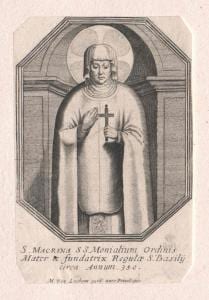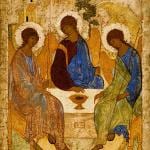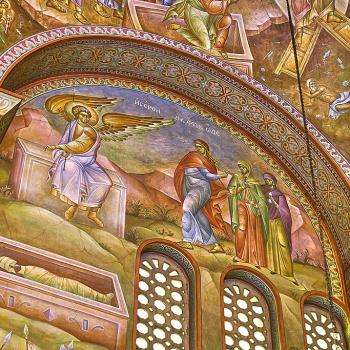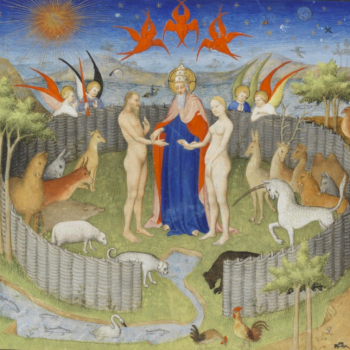
Ancient Christian history is filled with many remarkable women whose work and accomplishments were often central to the development and preservation of the Christian faith. And yet, when we think of Christian history, we often regulate them to the sidelines, or worse, sometimes question their contribution as a whole. St. Thecla is a prime example; she was a missionary who worked with the Apostle Paul before she died a martyr’s death. Beloved by early Christians, when the church slowly reduced the role and authority of women, we find her own legacy was ignored or criticized, making knowledge of her and her accomplishments less known; this is why we are left only with a few legendary fragments concerning her and her life. But what we have left makes it clear that she, and other women, did more than sit back in silence. Despite the fact that some have tried to hide her legacy, as well as the legacy of other important women found in early Christian history, their popularity and fame made it impossible to entirely do so. We have her witness. We have the witness of other such women. They were recognized and loved as saints by their contemporaries. We should study them. We should learn from them. In doing so, we will see how and why women must not be ignored, for their voice, their knowledge, their experience, often is at the forefront of Christian theological and spiritual development.
Not all Christian men wanted to ignore the power and influence of women in the faith. Some, thankfully, stood with them and worked with them and promoted them and their memory Some of them knew that they had been taught the faith by such women, and so that what they knew, what they did, in part, came from women. They know that their achievements were in reality the achievements of the women who directed and guided them throughout their lives. Thus, St. Gregory of Nyssa wrote on the life of his sister, St. Macrina, who not only helped him in his Christian faith, teaching him throughout her life, even on her deathbed, but she did so for the rest of her family, including their brother, St. Basil the Great:
After the mother had skillfully arrange what seemed best for each of Macrina’s sisters, her brother, the distinguished Basil, came home from school where he had had practice in rhetoric for a long time. He was excessively puffed up by his rhetorical abilities and disdainful of all great reputations, and considered himself better than the leading men in the district, but Macrina took him over and lured him so quickly to the goal of philosophy that he withdrew from the worldly show and began to look down upon acclaim through oratory and went over to this life full of labors for one’s own hand to perform, proving for himself, through his complete poverty, a mode of living that would, without impediment, lead to virtue. [1]
Her youngest brother, St Peter of Sebaste, was another whom she guided:
His eldest sister, the subject of our story, took him almost immediately from his nurse’s breast and reared him herself and led him to all the higher education, exercising him from babyhood in sacred learning so as not to give him leisure to incline his soul to vanities. She became all things to the boy; father, teacher, attendant, mother, the counselor of every good, and she held him in check so that, even before his flowering in the tenderness of youth. He was raised to the high goal of philosophy, and, by some good fortune of nature, he had such skill in every form of handicraft that without instruction he arrived at a complete mastery of skills upon which most people expend much time and energy. [2]
St. Macrina was capable of doing this because she was herself learned, but also, because she lived out what she had learned, that is, lived the life which philosophy had suggested to her, a life which she encouraged for her whole family, including her mother when she was no longer rearing children:
When the care of rearing the children and the responsibility of educating them and establishing them in life was over, and most of the resources connected with the more material life were divided up among younger members of the family, then, as I said before, Macrina’s life became for her mother a guide towards the philosophical and unworldly way of life, and, turning her aside from all that she was used to, she led her to her own standard of simplicity. She prepared her to put herself on a level with the community of virgins so that she shared with them the same food and lodging and all other things one needs in daily life, and there was no difference between her life and theirs. [3]
It was St. Macrina who helped lead her family, educating them, making sure that her brothers and sisters pursued the vocations which was best suited for each of them. St. Gregory of Nyssa saw in her a Socratic greatness, and recorded some of what he learned from her in his writings. Thus, we have a dialogue based upon his discussions with her while she was on her deathbed, discussing the immortality of the soul and the value of the resurrection. The great contributions to theology and monastic spirituality which we find coming from St. Basil and St. Gregory of Nyssa were founded, in part, from what they learned from St. Macrina. Thus, while Eastern Monasticism is often called “Basilian” due to the way it follows the guidelines set up by St. Basil, we could also call it “Macrinian” due to the way St. Basil followed what he had learned from his sister. Likewise, the great theological legacy of St. Gregory of Nyssa comes from what he learned from his sister, for she taught him not only the basics of the faith, but how to intellectually engage the faith, as his dialogue with her demonstrates. It is for this reason that some have lately called her the Fourth Cappadocian, establishing her proper place alongside St. Gregory of Nazianzus, St. Basil the Great, and St. Gregory of Nyssa, a theological powerhouse which helped transform Christian theology in the way they engaged questions concerning the Trinity and the limits of human knowledge in relation to God.
Sadly, the witness of St. Gregory of Nyssa, and the example of many powerful, and influential, women in early Christian history (such as St. Catherine of Alexandria, Saint Bridget, Saint Marcella, Saint Paula of Rome, St. Pulcheria and St. Theodora), Christianity lost the feminine voice, and with it, a major part of the spiritual tradition and knowledge which it should possess (similar to the way the great schism between the West and the East have hindered both sides of the divide). It is important for us to recognize the value and role of women in the ancient Christian setting, to point out that they could and often held positions of authority in the church (such as being deacons). Christians should not be dismissive of women and their contributions to the faith. For, as St. Pulcheria explained to Nestorius when he tried to undermine her for being a woman– without women, the incarnation itself would not have taken place.
[1] St. Gregory of Nyssa, “The Life of St. Macrina” in Ascetical Works. Trans. Virginia Woods Callahan (Washington, DC: CUA Press, 1967), 167-8.
[2] St. Gregory of Nyssa, “The Life of St. Macrina,” 172.
[3] St. Gregory of Nyssa, “The Life of St. Macrina,” 168.
Stay in touch! Like A Little Bit of Nothing on Facebook.
If you liked what you read, please consider sharing it with your friends and family!











